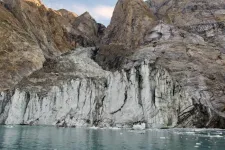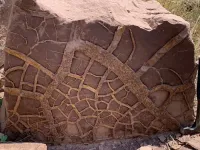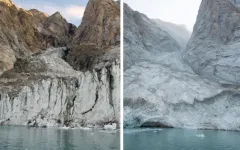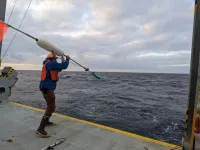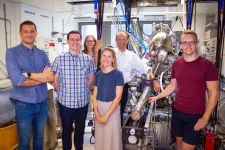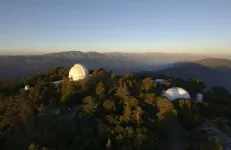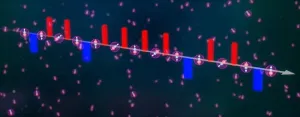(Press-News.org) In a Policy Forum, Mark McCabe and Frank Mueller-Langer explore how new open access (OA) mandates and agreements are changing how scientists share their work. They outline key contemporary unknowns in the open access landscape, as well as avenues for continued research. Since 2003, many national governments and international organizations have supported the Berlin Declaration on Open Access (OA) to Knowledge. More recently, some governments and organizations have introduced mandates to ensure open access to scientific publications and data. Notable initiatives include cOAlition S, launched in 2018 and supported by the European Commission and European Research Council, and a 2022 directive from the White House Office of Science and Technology Policy (OSTP) known as the “Nelson Memo,” which requires all U.S. taxpayer-funded research to be openly accessible to the public, without embargo or cost, by the end of 2025. Despite increasing adoption of open access practices, the various downstream impacts of related changes aren’t widely understood. McCabe and Mueller-Langer focus on the effects of OA “big deals,” or Transformative Agreements (TAs), where universities and a single publisher negotiate the fees for publishing (i.e. APCs, or article processing charges); these agreements influence market prices and structures for the different stakeholders in the publishing industry and in academia, say the authors. They point out that APC-based OA business models are not models all publishers can adopt. “It seems likely that OA and traditional reader-pay journals will coexist in the immediate future, and probably should in the long run.” The authors argue that research funders and publishers responding to OA mandates should help gather more data to inform related policy updates. “Experimental research design and evidence collection supported by research funders and publishers are important elements for rigorous evidence-based policy advice on OA and the future of scientific communication,” write McCabe and Mueller-Langer.
END
How is open access transforming science communication?
Summary author: Walter Beckwith
2024-09-12
ELSE PRESS RELEASES FROM THIS DATE:
US food waste bans fail to reduce landfill waste, except in Massachusetts
2024-09-12
State-level bans on commercial organic waste disposal have largely failed to reduce landfilled waste across the U.S., with one state standing out as the lone success, according to a new study. Massachusetts alone achieved a significant reduction in landfilled waste when it implemented food waste bans. The findings underscore the importance of well-designed and enforced policies, with Massachusetts offering a potential model for effective waste management. “Our study shows that food waste bans are far from guaranteed to be successful,” ...
Greenland landslide-induced tsunami produced global seismic signal that lasted 9 days
2024-09-12
In 2023, a massive rockslide in East Greenland, driven by glacial melt, triggered a towering tsunami and a rare global seismic signal that resonated for nine days, according to a new study. The study provides insights into how climate change-induced events like glacial thinning can lead to significant geophysical phenomena with impacts extending throughout the Earth system. Due to climate change, steep slopes are increasingly vulnerable to landslides. In Arctic regions – which are undergoing the most rapid warming globally ...
Climate change-triggered landslide unleashes a 650-foot mega-tsunami
2024-09-12
In September 2023, scientists around the world detected a mysterious seismic signal that lasted for nine straight days. An international team of scientists, including seismologists Alice Gabriel and Carl Ebeling of UC San Diego’s Scripps Institution of Oceanography came together to solve the mystery.
A new study published today in Science provides the stunning solution: In an East Greenland fjord, a mountaintop collapsed into the sea and triggered a mega-tsunami about 200 meters (650 feet) tall. The giant ...
New study reveals food waste bans ineffective in reducing landfill waste, except in Massachusetts
2024-09-12
Of the first five U.S. states to implement food waste bans, only Massachusetts was successful at diverting waste away from landfills and incinerators, according to a new study from the University of California Rady School of Management.
The paper, published today in Science, suggests a need to reevaluate current strategies, citing Massachusetts' approach as a benchmark for effective policy implementation.
Between 2014 and 2024, nine U.S. states made it unlawful for commercial waste generators—such as grocery chains—to dispose of their food waste in landfills, expecting a 10–15% waste reduction.
“We ...
New research reveals how El Nino caused the greatest ever mass extinction
2024-09-12
Mega ocean warming El Niño events were key in driving the largest extinction of life on planet Earth some 252 million years ago, according to new research.
The study, published today in Science and co-led by the University of Bristol and China University of Geosciences (Wuhan), has shed new light on why the effects of rapid climate change in the Permian-Triassic warming were so devastating for all forms of life in the sea and on land.
Scientists have long linked this mass extinction to vast volcanic eruptions in what is now Siberia. The resulting carbon dioxide emissions rapidly accelerated climate warming, resulting in widespread stagnation and the collapse ...
Climate-change-triggered landslide caused Earth to vibrate for nine days
2024-09-12
A landslide in a remote part of Greenland caused a mega-tsunami that sloshed back and forth across a fjord for nine days, generating vibrations throughout Earth, according to a new study involving UCL researchers.
The study, published in the journal Science, concluded that this movement of water was the cause of a mysterious, global seismic signal that lasted for nine days and puzzled seismologists in September 2023.
The initial event, not observed by human eye, was the collapse of a 1.2km-high mountain peak into the remote Dickson Fjord beneath, causing a backsplash of water 200 metres in the air, with a wave up to 110 metres high. This ...
Microbe dietary preferences influence the effectiveness of carbon sequestration in the deep ocean
2024-09-12
Woods Hole, Mass. (September 13, 2024) - The movement of carbon dioxide (CO2) from the surface of the ocean, where it is in active contact with the atmosphere, to the deep ocean, where it can be sequestered away for decades, centuries, or longer, depends on a number of seemingly small processes.
One of these key microscale processes is the dietary preferences of bacteria that feed on organic molecules called lipids, according to a journal article, "Microbial dietary preference and interactions affect the export of lipids to the deep ocean," published in Science.
"In ...
The insulator unraveled
2024-09-12
Aluminum oxide (Al2O3), also known as alumina, corundum, sapphire, or ruby, is one of the best insulators used in a wide range of applications: in electronic components, as a support material for catalysts, or as a chemically resistant ceramic, to name a few. Knowledge of the precise arrangement of the surface atoms is key to understanding how chemical reactions occur on this material, such as those in catalytic processes. Atoms inside the material follow a fixed arrangement, giving rise to the characteristic shapes ...
$3.5M grant to Georgia State will fuel space research across the globe
2024-09-12
ATLANTA — A new three-year, $3.5 million grant from the U.S. National Science Foundation will foster new research at Georgia State’s Center for High Angular Resolution Astronomy (CHARA) Array by astronomers from around the world.
The grant will fund open-access time at the CHARA Array through the NSF National Optical-Infrared Astronomy Research Laboratory (NSF NOIRLab). The program offers astronomers the opportunity to apply for observing time at the CHARA Array to investigate all kinds of objects ...
Polar molecules dance to the tunes of microwaves
2024-09-12
The interactions between quantum spins underlie some of the universe’s most interesting phenomena, such as superconductors and magnets. However, physicists have difficulty engineering controllable systems in the lab that replicate these interactions.
Now, in a recently published Nature paper, JILA and NIST Fellow and University of Colorado Boulder Physics Professor Jun Ye and his team, along with collaborators in Mikhail Lukin’s group at Harvard University, used periodic microwave pulses in a process known as Floquet engineering, to tune interactions between ultracold potassium-rubidium molecules in a system appropriate for studying fundamental magnetic ...
LAST 30 PRESS RELEASES:
New knowledge on heritability paves the way for better treatment of people with chronic inflammatory bowel disease
Under the Lens: Microbiologists Nicola Holden and Gil Domingue weigh in on the raw milk debate
Science reveals why you can’t resist a snack – even when you’re full
Kidney cancer study finds belzutifan plus pembrolizumab post-surgery helps patients at high risk for relapse stay cancer-free longer
Alkali cation effects in electrochemical carbon dioxide reduction
Test platforms for charging wireless cars now fit on a bench
$3 million NIH grant funds national study of Medicare Advantage’s benefit expansion into social supports
Amplified Sciences achieves CAP accreditation for cutting-edge diagnostic lab
Fred Hutch announces 12 recipients of the annual Harold M. Weintraub Graduate Student Award
Native forest litter helps rebuild soil life in post-mining landscapes
Mountain soils in arid regions may emit more greenhouse gas as climate shifts, new study finds
Pairing biochar with other soil amendments could unlock stronger gains in soil health
Why do we get a skip in our step when we’re happy? Thank dopamine
UC Irvine scientists uncover cellular mechanism behind muscle repair
Platform to map living brain noninvasively takes next big step
Stress-testing the Cascadia Subduction Zone reveals variability that could impact how earthquakes spread
We may be underestimating the true carbon cost of northern wildfires
Blood test predicts which bladder cancer patients may safely skip surgery
Kennesaw State's Vijay Anand honored as National Academy of Inventors Senior Member
Recovery from whaling reveals the role of age in Humpback reproduction
Can the canny tick help prevent disease like MS and cancer?
Newcomer children show lower rates of emergency department use for non‑urgent conditions, study finds
Cognitive and neuropsychiatric function in former American football players
From trash to climate tech: rubber gloves find new life as carbon capturers materials
A step towards needed treatments for hantaviruses in new molecular map
Boys are more motivated, while girls are more compassionate?
Study identifies opposing roles for IL6 and IL6R in long-term mortality
AI accurately spots medical disorder from privacy-conscious hand images
Transient Pauli blocking for broadband ultrafast optical switching
Political polarization can spur CO2 emissions, stymie climate action
[Press-News.org] How is open access transforming science communication?Summary author: Walter Beckwith
